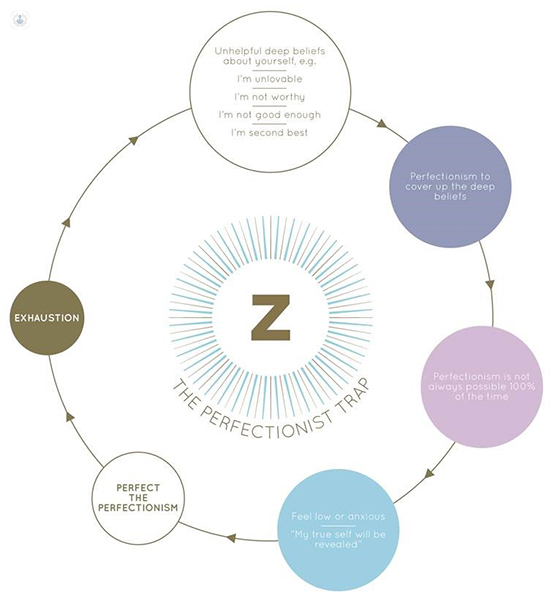Exhaustion and burnout: when feeling tired becomes too much
Written by:If you are feeling overwhelmed by your workload or responsibilities, and constantly feel tired, you could be heading for a burnout, and it is important to be aware of the signs, before it reaches that point. Dr Catherine Sykes is an experienced London-based psychologist who is very familiar in seeing patients suffering from exhaustion and burnout. Here, she explains how we can differentiate between just feeling tired, exhaustion, and finally burnout.

What do we mean by exhaustion? Is it the same as burnout?
Exhaustion is one of the symptoms of burnout. It usually starts with a sense of being overwhelmed and mentally drained. This can lead to a physical sense of exhaustion that leaves your body feeling really tired. With all the worries, pressures, long hours at work and the responsibilities of modern life, exhaustion has become a common state of being. It has become acceptable to reply “I’m exhausted” when asked, “How are you?”. However, it is not a healthy state as it can lead to chronic fatigue and other physical problems, for example, with immunity and digestion.
Other symptoms of burnout include feeling like you are unable to do your job. You may start to hate your job and, because you are exhausted, you think that you don’t have the energy to do anything about it. This can cause feelings of hopelessness which then exacerbates the feeling of exhaustion. Personality traits and thought patterns can contribute to burnout, in particular, a maladaptive perfectionist thinking style.

Read: Promoting your own mental health
How does it differ from a condition such as “chronic fatigue”?
Exhaustion is one of the symptoms of chronic fatigue syndrome (CFS). CFS often includes other symptoms such as headaches, sleep disturbance, muscle and joint pain. To confirm a diagnosis of CFS, you must have had symptoms that have lasted longer than six months and are not alleviated by rest. From my experience of working privately with hundreds of exhausted clients, always feeling exhausted can be part of a trajectory to CFS. It is a sign that changes are needed in your life. It is a state that takes you further away from your life’s purpose and sense of fulfilment, which can lead to more serious mental health issues further ahead.
Can it be “treated”?
Dealing with exhaustion involves reviewing your life and understanding all your stressors that are contributing to your exhaustion. The hardest part of dealing with exhaustion is making the changes once you know all your stressors and energy drainers. Understanding how your thought patterns are contributing to your stressors is an important part of dealing with exhaustion as well.
What are the pros/cons of treating exhaustion/burnout as a medical condition?
Recognising and treating exhaustion as a medical condition would give sufferers the permission to take time off work and slow down, rest, re-evaluate and reduce the stress in their life. However, it is such a common state that, potentially, a lot of people would be off work at the same time. Nonetheless, having too many exhausted people in a workforce slows down productivity, so it may not be too bad. It could also prevent a lowered immunity to illness, which in the long-term would reduce sick days and the cost of treating more serious illnesses.
If you frequently feel tired, stressed and overwhelmed by your day-to-day responsibilities, it might be helpful to speak with an expert.
Dr Sykes writes extensively on the subject of combatting exhaustion in her book Exhausted! Discover how to feel energized to lead a life with purpose.


